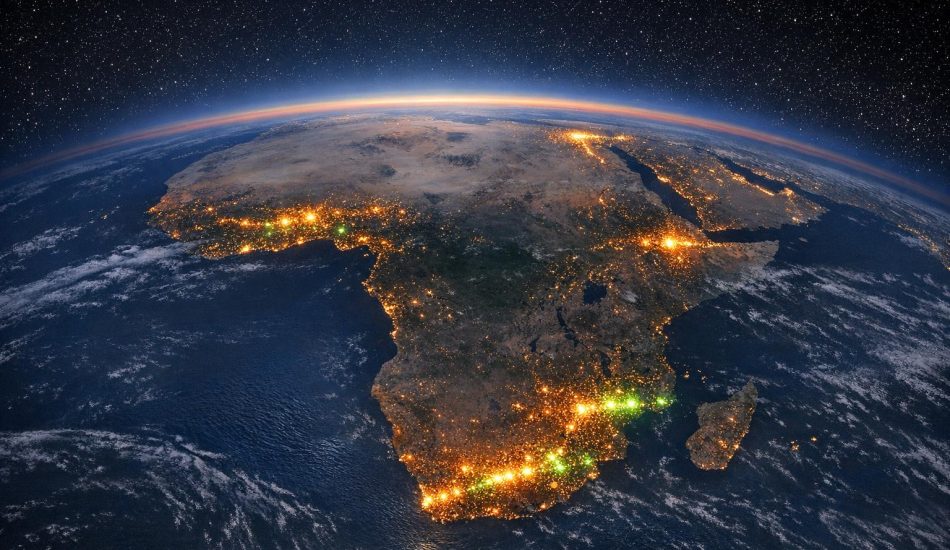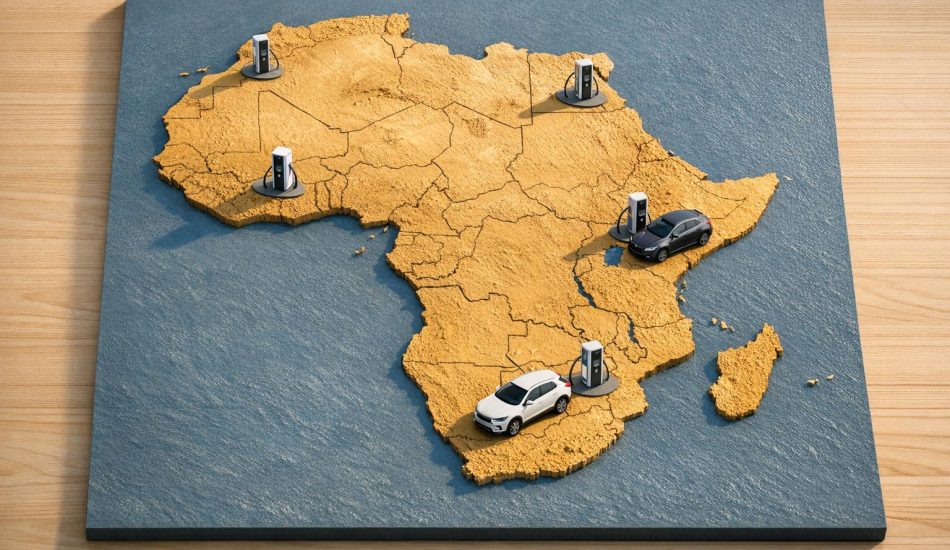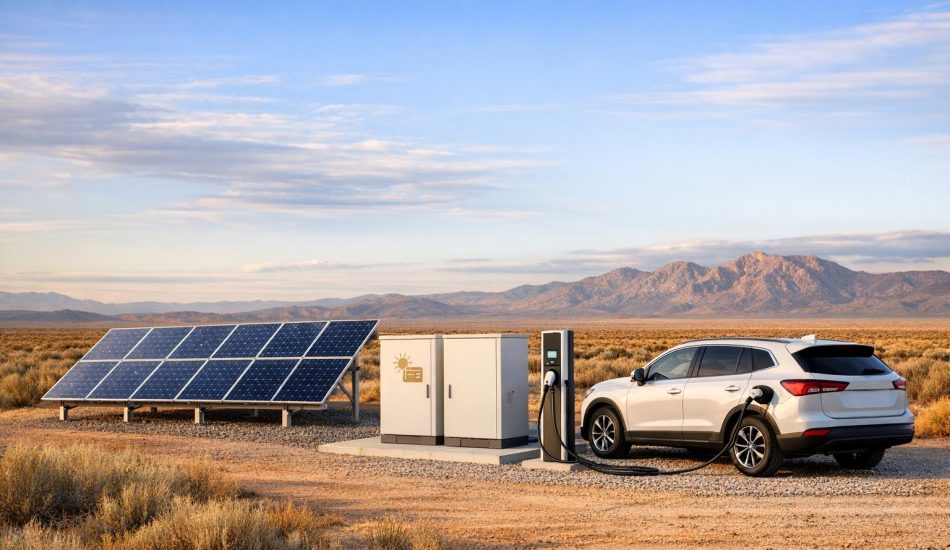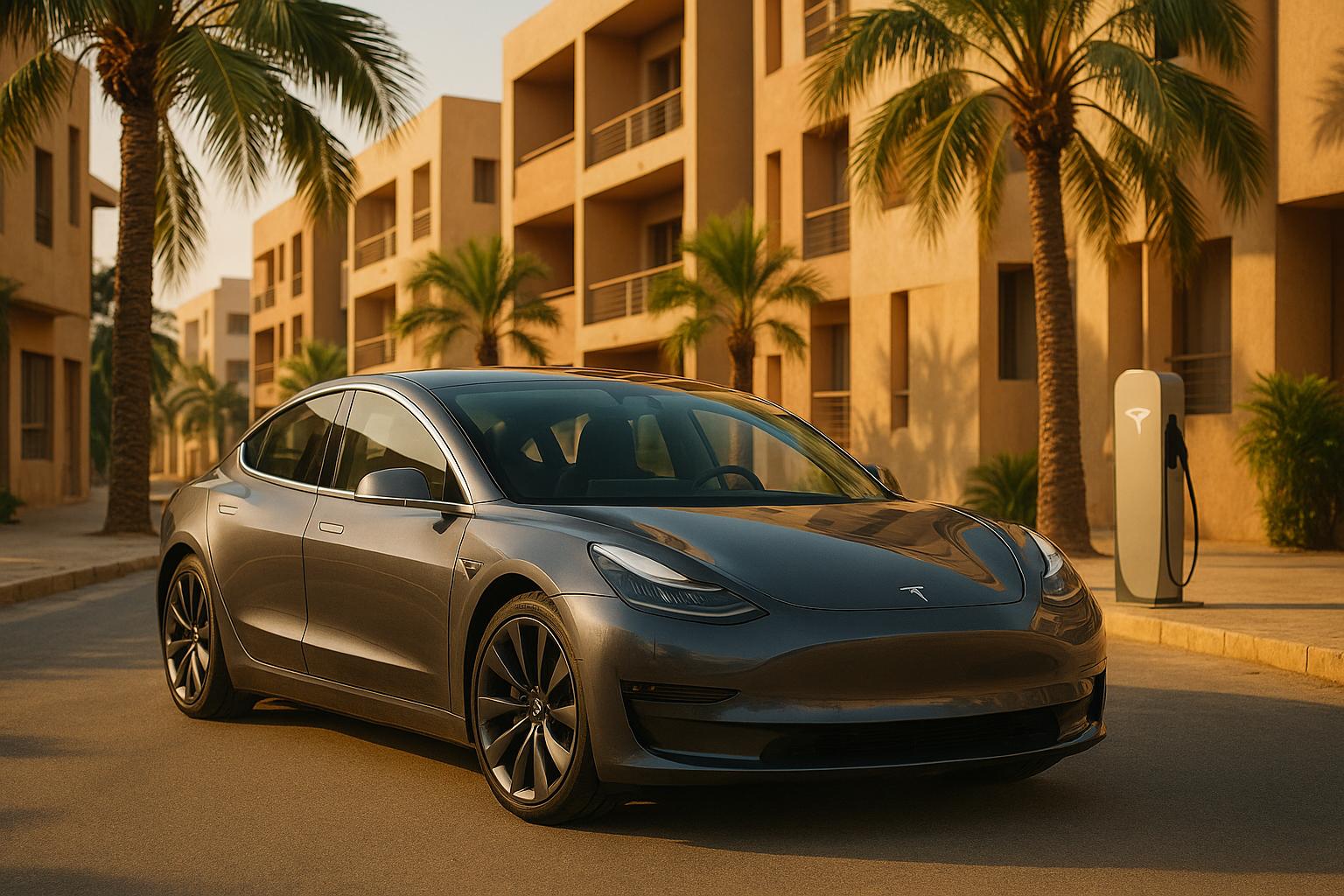
Tesla‘s electric cars are now more accessible in Senegal, thanks to VAT and customs duty exemptions for EVs in 2025. Despite the lack of official Tesla dealerships, platforms like EV24.africa simplify the import process. Here’s what you need to know:
- Available Models: Model 3 (compact sedan), Model Y (compact SUV), Model S (luxury sedan), and Model X (full-size SUV).
- Pricing: Higher than U.S. prices due to import costs and local adjustments. Contact EV24.africa for exact pricing.
- Charging: Home charging is essential, as public charging infrastructure is limited. Installation costs range from $1,150 to $2,750.
- Local Suitability: Tesla cars perform well on Senegal’s roads, with the Model Y and Model X better suited for rough terrain.
- Import Process: EV24.africa handles shipping, customs, and financing options tailored to Senegalese buyers.
While Tesla’s presence in Senegal is still indirect, improved government incentives and growing interest in EVs make ownership more appealing. For now, platforms like EV24.africa bridge the gap until Tesla officially enters the market.
Tesla‘s Market Presence in Senegal
Tesla’s West Africa Expansion
Tesla has made a calculated entry into the West African market, using its presence in North Africa as a launchpad. The company took a significant step by establishing its first African subsidiary, Tesla Morocco, in Casablanca on May 27, 2025. With an initial investment of MAD 27.5 million (roughly $2.75 million USD), this office functions as Tesla’s continental headquarters. From here, Tesla manages vehicle imports and sales, handles servicing, installs EV charging stations, and rolls out solar and battery energy systems. The groundwork for this expansion started earlier, with the installation of Hybrid Superchargers in Casablanca and Tangier back in 2021.
In April 2025, Elon Musk revealed plans for Tesla’s first African factory, to be built near Kenitra, Morocco. This facility is projected to produce up to 400,000 electric vehicles annually, starting in 2027. Morocco’s thriving automotive industry, which already manufactures over 700,000 vehicles per year (primarily for export), coupled with the country’s goal of achieving 52% renewable energy by 2030, makes it an ideal choice for Tesla’s expansion.
While Tesla has yet to establish an official presence in Senegal, its vehicles are becoming a familiar sight in Dakar, signaling growing interest. The company has also announced plans to expand into West Sahara, as part of a broader strategy to introduce sustainable energy solutions to emerging markets. This includes setting up charging stations and service centers. Tesla’s approach treats West Africa as a unified market, focusing on regional connectivity rather than isolated country-specific efforts. This strategy opens the door for local intermediaries to act as a bridge between Tesla and potential buyers.
EV24.africa‘s Role
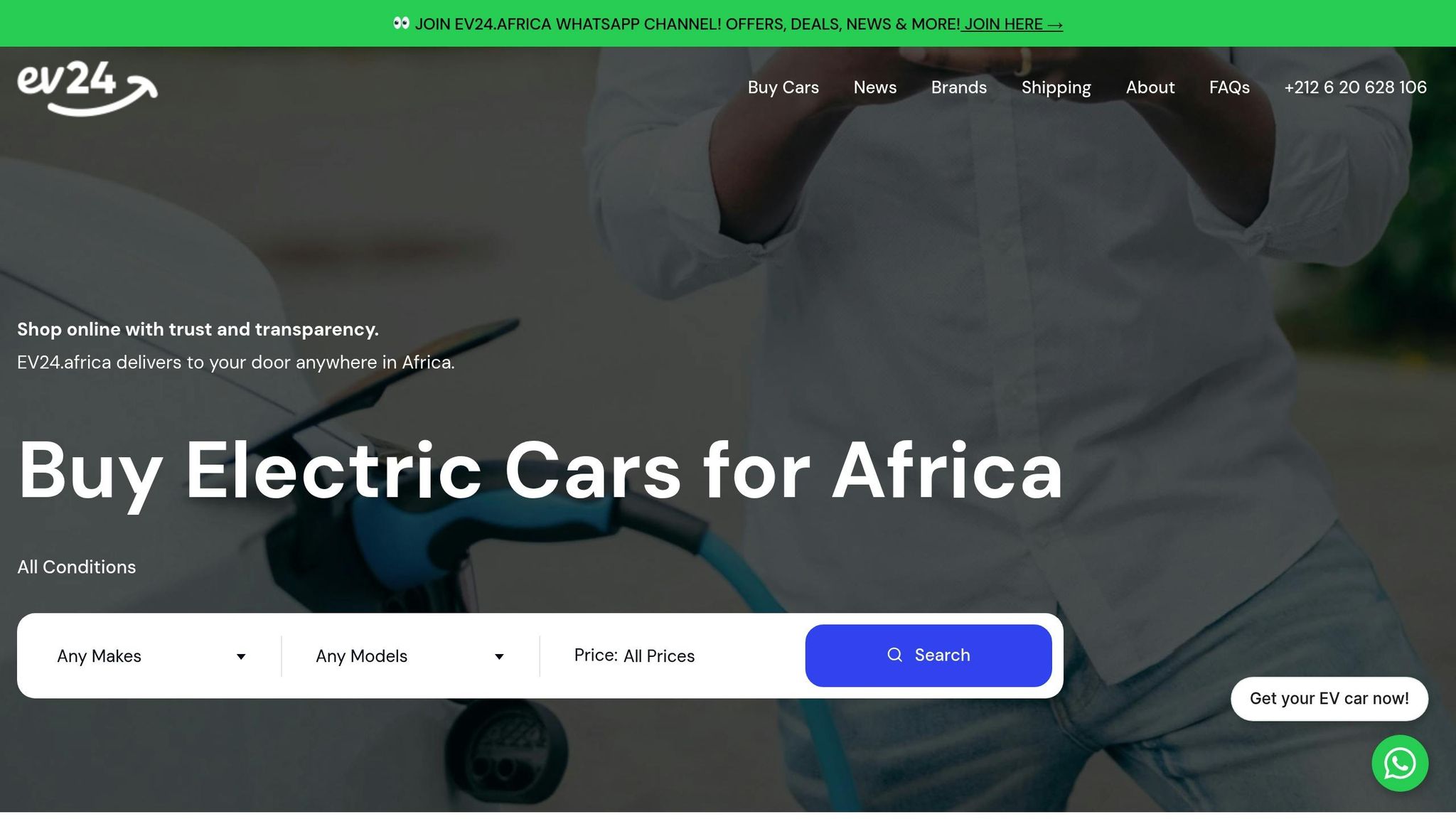
In the absence of official Tesla dealerships, EV24.africa has stepped in to connect Senegalese buyers with Tesla vehicles. This platform specializes in importing electric vehicles across all 54 African nations, providing a wide range of listings with clear pricing. Beyond imports, EV24.africa manages shipping logistics, offers flexible financing options, and provides expert advice tailored to local needs. Whether it’s guiding customers on the best models for Dakar’s urban streets or for longer drives across Senegal, EV24.africa has positioned itself as an invaluable resource for Tesla enthusiasts. Until Tesla establishes direct operations in Senegal, EV24.africa effectively serves as the go-to solution for accessing Tesla vehicles in the region.
Tesla Models Available in Senegal (2025)
Tesla Model Lineup
In 2025, EV24.africa’s network introduces four Tesla models to Senegal, each designed to suit different preferences and budgets. First up is the Model 3, Tesla’s entry-level sedan. This sleek, compact car offers impressive efficiency and a range of up to 358 miles. Inside, it features Tesla’s signature minimalist design, focusing on a central touchscreen that manages most of the car’s functions.
Next is the Model Y, a compact SUV built on the same platform as the Model 3. It offers more cargo space and optional seating for up to seven passengers, making it a practical choice for families. With a range of 330 miles, the Model Y balances performance with utility, appealing to those who need extra storage or passenger capacity.
For those seeking luxury and top-tier performance, the Model S takes the spotlight as Tesla’s flagship sedan. With a range of up to 405 miles and an acceleration of 0–60 mph in just 1.99 seconds (in the Plaid configuration), it delivers both speed and sophistication. The Model S boasts a spacious cabin with premium materials, a large display, and advanced autopilot features.
Rounding out the lineup is the Model X, Tesla’s full-size SUV. Known for its iconic falcon-wing doors, it seats up to seven adults comfortably. Despite its size, the Model X achieves a range of up to 348 miles and offers impressive towing capabilities, handling up to 5,000 pounds.
All four models come equipped with over-the-air updates, access to Tesla’s Supercharger network, and advanced safety features. These vehicles are well-prepared to meet the challenges of Senegal’s varied landscapes and climate.
Suitability for Senegal’s Roads and Climate
Tesla vehicles are designed to adapt to a wide range of conditions, and certain models bring features particularly suited to Senegal’s environment. The Model Y, with its higher ground clearance and sturdy build, is especially well-suited for navigating Senegalese roads. Its elevated design proves invaluable when dealing with flooded streets during the rainy season or tackling the unpaved roads common in rural areas.
Tesla’s engineering also makes these vehicles a good fit for tropical climates. Their thermal management systems can handle temperatures up to 95°F (35°C), while sealed battery packs guard against humidity and dust. Additionally, Tesla’s standard heat pump ensures a comfortable cabin, even in extreme heat, though it may slightly reduce driving range.
The Model 3 and Model S excel on paved roads, offering smooth and efficient travel, while the Model Y and Model X, with their higher ride height, perform better on rough or uneven terrain.
Maintenance is simplified with Tesla’s electric design, eliminating the need for engine-related upkeep. However, during the Harmattan season (November–March), drivers may need to clean sensors and cameras more frequently due to dust and sand.
Finally, Senegal’s warm, dry season supports optimal battery performance, allowing Tesla vehicles to achieve ranges close to their EPA ratings. This makes them an excellent choice for both city driving and longer journeys across the country.
Tesla Car Prices in Senegal (2025)
Price Ranges for Available Models
Tesla vehicles in Senegal come with higher price tags compared to their U.S. counterparts. This is largely due to additional import expenses and local market adjustments. For those purchasing through EV24.africa’s network, pricing is straightforward and transparent, though it varies depending on the model, configuration, and current market trends. To get the most precise and current pricing information, it’s best to reach out to EV24.africa directly. These costs are influenced by several factors, which are outlined below.
Factors Affecting Pricing
A variety of elements contribute to the pricing of Tesla cars in Senegal:
- Import Duties and Taxes: Local tax policies and import duties significantly increase the overall cost of Tesla vehicles.
- Shipping and Currency Rates: International shipping fees and fluctuations between the U.S. dollar and the West African CFA franc lead to price changes. EV24.africa regularly adjusts pricing to reflect these currency shifts.
- Local Certification and Compliance: Ensuring Tesla models adhere to Senegalese safety and emissions standards involves certification processes that add to the cost.
- Dealer Margins and Support Services: Investments in local partnerships, technician training, and maintaining a parts inventory for after-sales service are factored into the pricing. These efforts ensure buyers have access to reliable warranties and support.
- Limited Supply: The limited availability of Tesla cars locally means sourcing vehicles internationally, which increases costs.
Tesla Model Specifications and Key Features
Charging Compatibility
Tesla vehicles come equipped with versatile charging options, making them adaptable to Senegal’s current infrastructure. Given the country’s limited public charging network, setting up a home charging station is a practical necessity.
The Mobile Connector can be used with standard 220V household outlets, providing about 3–5 miles (5–8 km) of range per hour. For faster charging, the Wall Connector paired with a 240V outlet delivers up to 44 miles (71 km) of range per hour.
Setting up a home charging station typically costs between $1,150 and $2,750. This includes the charging unit, which ranges from $350 to $750, and installation fees, which can run from $800 to $2,000. If your electrical panel needs an upgrade, expect additional costs of $5,000 to $10,000.
This range of charging options highlights Tesla’s ability to adapt to Senegal’s evolving market and infrastructure needs.
sbb-itb-99e19e3
Buying a Tesla in Senegal: Process and Practical Considerations
Purchasing Process with EV24.africa
EV24.africa simplifies the process of buying a Tesla across Africa, including Senegal. Their platform allows you to browse detailed Tesla listings, complete with full vehicle specifications, clear pricing, and high-quality images. From selection to delivery, they handle the logistics to make the experience as smooth as possible.
Once you’ve chosen your Tesla, EV24.africa offers financing options through local banks, with plans that can be tailored to your needs. They also provide delivery services to all 54 African countries, including Senegal, managing shipping logistics and customs documentation to ensure your Tesla arrives in perfect condition.
After securing your Tesla, it’s important to familiarize yourself with local rules and infrastructure to ensure a seamless ownership experience in Senegal.
Regulations and Requirements
Importing a Tesla into Senegal involves navigating customs and registration processes. The Senegalese government encourages the use of electric vehicles by offering reduced import duty rates for EVs, making it more affordable to bring in your Tesla.
To clear customs, you’ll need to submit key documents, including the vehicle’s certificate of origin, purchase invoice, and shipping paperwork. Once through customs, the next step is registration with Senegal’s Direction des Transports Terrestres. This requires a technical inspection to confirm the vehicle meets local safety standards. After passing the inspection, complete the registration process by adhering to any additional local requirements.
When it comes to insurance, major providers in Senegal offer coverage for electric vehicles. Be sure to compare policies, as premiums can vary depending on the Tesla model and the level of coverage you need.
The final step is understanding how Senegal’s charging infrastructure supports Tesla ownership.
Using Senegal’s EV Infrastructure
Charging your Tesla in Senegal takes some planning, as the public charging network is still in development. Most public charging stations are concentrated in Dakar, offering primarily Level 2 charging options. For convenience, many Tesla owners rely on home charging, either through standard outlets or by installing a dedicated charging station for faster and more efficient charging.
Senelec, Senegal’s national electricity provider, is actively working to improve the power grid to accommodate the growing number of electric vehicles. However, in areas where power fluctuations are common, it’s wise to invest in a voltage stabilizer to protect your Tesla’s charging system.
While Tesla vehicles generally require less maintenance than traditional cars, access to specialized service is still important. Although Senegal does not yet have an official Tesla service center, certified technicians in Dakar can handle routine maintenance and software updates.
For longer trips, plan ahead by identifying charging stops along major routes, as charging infrastructure outside Dakar and other urban areas is still limited.
Future Outlook for Tesla in Senegal (2025 and Beyond)
Infrastructure Development
As Senegal continues to enhance its EV charging and service networks, the prospects for Tesla ownership look brighter than ever. With ongoing improvements to the existing charging infrastructure, the future holds the potential for even greater support for Tesla and other electric vehicles.
A well-established charging and maintenance network is key to expanding EV use across Senegal. Companies like Mbay Mobility are working to create dedicated charging stations and reliable maintenance services, forming the foundation of the nation’s growing EV ecosystem.
Senegal embraces electric cars to fight pollution in Dakar • FRANCE 24 English
Conclusion
Owning a Tesla in Senegal has become more achievable in 2025, but it still requires careful planning due to higher costs and infrastructure limitations. Tesla vehicles in Senegal are priced above MSRP because of shipping expenses, steep import duties, and dealer markups. On the bright side, the Senegalese government has introduced tax incentives and lowered import duties, making electric vehicles more appealing. This pricing scenario highlights the importance of considering both the car’s features and the available options to simplify the import process.
Tesla models imported by specialized dealers bring cutting-edge EV technology that fits well with Senegal’s driving conditions. However, buyers should plan for home charging solutions since the country currently lacks an official Tesla Supercharger network. Maintenance and repairs also require extra thought, as there are no local Tesla service centers yet. Despite these challenges, the range of Tesla models available meets diverse needs and adapts well to Senegal’s roads and climate.
Companies like EV24.africa make Tesla ownership more practical by handling logistics, navigating customs processes, and offering vehicles with warranty coverage. Their services provide a seamless path for consumers eager to experience the benefits of electric mobility, bridging the gap between high costs and the realities of ownership.
Looking ahead, the future of Tesla in Senegal seems promising as the country continues to improve its charging infrastructure and expand government incentives for electric vehicles. For those willing to invest in premium electric transportation, the combination of government support, growing infrastructure, and EV24.africa’s services creates a clear and viable pathway to Tesla ownership in Senegal’s evolving EV market.
FAQs
What challenges should Tesla owners in Senegal consider regarding infrastructure and services?
Tesla owners in Senegal encounter a few hurdles tied to the country’s infrastructure and service landscape. One of the main obstacles is the lack of charging stations. With Tesla Superchargers not yet widely available, both long-distance travel and the daily task of recharging can be a bit of a hassle.
Another challenge lies in the limited options for repair and maintenance. Since electric vehicle (EV) technology is still relatively new to the region, finding skilled technicians or sourcing replacement parts isn’t always straightforward. On top of that, some prospective buyers might hesitate to embrace EVs due to unfamiliarity with the technology or skepticism about its practicality.
That said, as EV adoption continues to rise around the world, there’s hope that Senegal’s infrastructure and services will evolve to better support electric vehicles in the years ahead.
How does EV24.africa make it easier to buy and import a Tesla in Senegal, and what are the advantages of using their service?
EV24.africa takes the complexity out of buying and importing a Tesla into Senegal. They manage every step of the process – sourcing the vehicle, shipping, customs clearance, and even registration – so buyers can enjoy a smooth, worry-free experience.
With clear pricing and no hidden charges, they provide options like Delivered Duty Paid (DDP) and Free on Board (FOB) to help buyers control costs. Their comprehensive support makes Tesla ownership in Senegal easier and more straightforward.
What government incentives are available for buying an electric vehicle in Senegal, and how do they affect the cost of owning a Tesla?
Senegal provides a range of government incentives to promote the use of electric vehicles (EVs). Among these, 100% electric vehicles are exempt from VAT and customs duties, while hybrid and non-electric vehicles enjoy reduced import duties.
These measures effectively cut down the initial costs of buying and importing a Tesla or other EVs, making them more attainable for consumers. By easing these financial barriers, the government is working to encourage cleaner transportation options and boost the shift toward electric mobility in the country.


